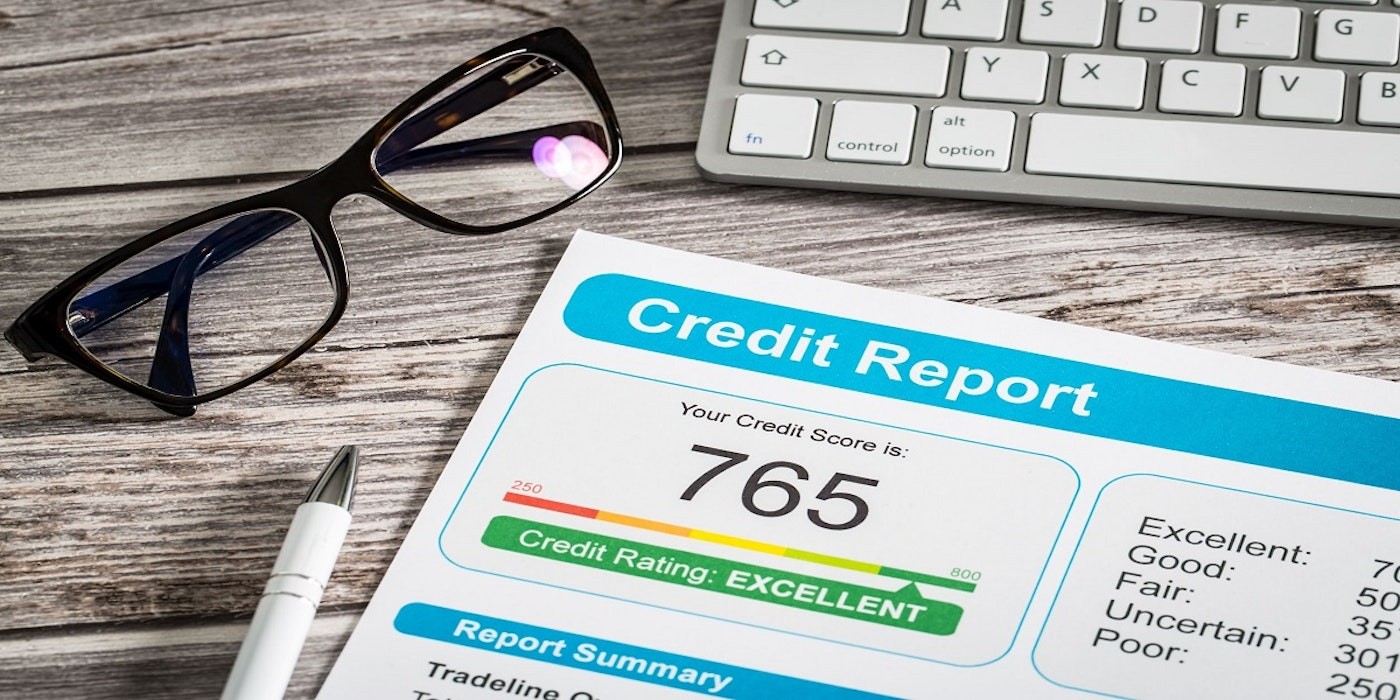Does Consolidating Loans Help Your Credit Score?

Consolidating loans can be an excellent option for individuals struggling with multiple debts and high-interest rates. It allows you to combine your debts into one manageable payment, potentially lowering your monthly fees and overall interest costs. But does consolidating your loans help your credit score? The answer is complex, and it depends on a few factors.
To understand the impact of loan consolidation on your credit score, let's first look at how credit scores are calculated. Credit scores are based on various factors, including payment history, credit utilisation, length of credit history, types of credit, and new credit. Payment history and credit utilisation are your credit score's most heavily weighted factors.
Debt consolidation is a popular strategy for managing debt, especially for individuals with multiple debts with different interest rates and payment terms. By consolidating their debt into one loan, individuals can simplify their payments, reduce their interest rates, and lower their monthly payments. However, many wonder if consolidating their loans will positively or negatively impact their credit score. In this article, we'll explore the impact of debt-consolidating loans on credit scores and what you need to consider before consolidating your loans.
Understanding Credit Scores

Credit scores are a critical component of your financial health, impacting your ability to obtain credit, such as loans, credit cards, and mortgages. A credit score is a numerical representation of your creditworthiness, ranging from 300 to 850. Lenders use your credit score to determine your risk as a borrower, which can affect the interest rates you receive on loans.
Credit scores are calculated based on several factors, including payment history, credit utilisation, length of credit history, types of credit, and new credit. Payment history is one of the most critical factors, accounting for approximately 35% of your score. It evaluates whether you pay your bills on time and have any delinquencies or accounts in collections.
Credit utilisation is another critical factor, accounting for approximately 30% of your credit score. It evaluates how much of your available credit you're using, and high credit utilisation can negatively impact your credit score. You should use less than 30% of your available credit.
Understanding these factors and how they contribute to your credit score is crucial for maintaining good financial health. The following section will explore how consolidated loans affect credit scores.
The Impact of Consolidating Loans on Credit Scores

Consolidating loans can impact credit scores positively or negatively, depending on how it's done. When you apply for a debt consolidation loan, the lender will perform a hard inquiry on your credit report, which can temporarily lower your credit score by a few points. However, the impact of the tricky question is typically minimal and temporary, and your credit score should recover within a few months if you make your payments on time.
The primary way that consolidating loans can impact your credit score is through your credit utilisation ratio. Credit utilisation is the amount of credit you use compared to the available credit. It's essential in determining credit scores; experts recommend keeping it below 30%.
Consolidating loans can lower your credit utilisation ratio if you use the loan to pay off credit card debt. For example, if you have three credit cards with a total balance of $10,000 and a total credit limit of $20,000, your credit utilisation ratio is 50%. However, if you consolidate your credit card debt into a loan with a $10,000 balance, your credit utilisation ratio drops to 25%. This reduction in credit utilisation can positively impact your credit score.
On the other hand, consolidating loans can increase your credit utilisation ratio if you close old credit accounts or reduce only one type of credit. For example, if you complete a credit card account with a high credit limit, your available credit decreases, and your credit utilisation ratio increases, potentially negatively impacting your credit score.
Short-Term vs. Long-Term Impact

Consolidating loans can have both short-term and long-term impacts on your credit score. Your credit score may dip slightly in the short term due to the credit check and potential new account opening. However, your credit score will likely recover within a few months if you make timely payments.
In the long term, the impact of consolidating loans on your credit score will depend on how you manage your payments and credit utilisation. If you make timely payments and maintain a low credit utilisation ratio, your credit score will likely improve.
However, closing old accounts after consolidating loans can potentially harm your credit score in the long term. As mentioned earlier, closing statements can lower your available credit, raising your credit utilisation ratio. This, in turn, can negatively impact your credit score.
Overall, the short-term impact of consolidating loans on your credit score may be minimal. In contrast, the long-term impact will depend on how well you manage your payments and credit utilisation. Considering both the short-term and long-term effects before consolidating your loans is crucial.
What to Consider Before Consolidating Loans

Before consolidating your loans, there are several factors you should consider to determine whether it's the right choice for your financial situation. If you have multiple debts with high-interest rates, consolidating them into one loan with a lower interest rate can save you money on interest charges and simplify your payments. Here are some things to keep in mind:
Interest rates: One of the primary reasons people consolidate their loans is to obtain a lower interest rate. However, comparing interest rates from various lenders is essential to ensure you're getting a better deal. Be sure to consider any fees associated with the loan, as well.
Payment terms: Consolidating loans may result in longer payment terms, which can lower your monthly payments but increase the interest you pay over time. It's crucial to weigh the pros and cons of longer payment terms and determine what works best for your financial situation.
Eligibility: Only some loans are eligible for consolidation, and only some are suitable for consolidation loans. Reviewing your credit score and income to determine whether you qualify for a consolidation loan is crucial.
Impact on credit score: As discussed earlier, consolidating loans can impact your credit score in the short and long term. Considering the potential impact on your credit score before consolidating your loans is essential.
Budget: Finally, reviewing your budget is crucial to ensure you can make the monthly payments on a consolidation loan. If you need help to make ends meet, there may be better options than consolidating loans.
Final Thoughts
In conclusion, consolidating loans will improve your credit score by reducing your credit utilisation and making it more accessible, and Driva can help you make timely payments. However, it's essential to consider the potential impact of closing accounts and continue using credit responsibly to avoid accumulating more debt.
It's also worth noting that while consolidating loans may have a short-term impact on your credit score, the long-term benefits of reducing your debt and lowering your interest rates can be significant. If you are considering consolidating your loans, it's essential to weigh the potential impact on your credit score against the potential benefits for your financial situation. Consult with a financial advisor to determine the best course of action.
FAQs
Will consolidating my loans automatically improve my credit score?
No, consolidating your loans won't automatically improve your credit score. However, it can positively impact your credit score if you manage your payments and credit utilisation well after consolidating your loans.
Will consolidating my loans negatively impact my credit score?
Consolidating your loans can affect your credit score negatively if you miss payments, close old accounts, or reduce only one type of credit. However, consolidating your loans can positively impact your credit score if you manage your costs and utilisation well.
How long does it take for consolidating loans to impact my credit score?
The short-term impact of reducing loans on your credit score can occur within a few months. However, the long-term impact will depend on how well you manage your payments and credit utilisation.
Will consolidating my loans increase my credit limit?
Consolidating your loans may increase your credit limit, lower your credit utilisation ratio, and positively impact your credit score.
Is consolidating loans the right choice for everyone?
There are better choices than consolidating loans for everyone. It's essential to consider your financial situation, eligibility, interest rates, payment terms, and impact on your credit score before consolidating your loans.


.png)







